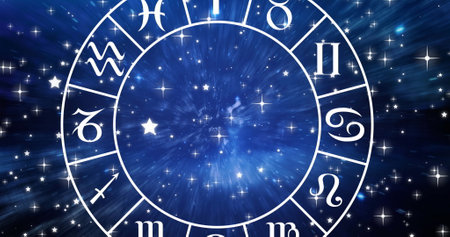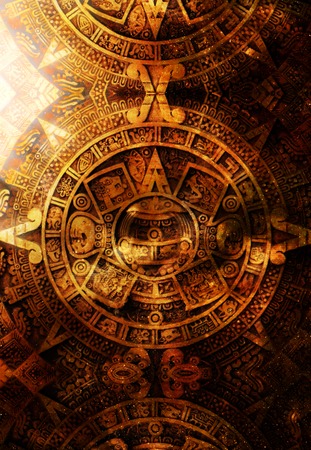Significance of Festivals in Indian Culture
In the vast tapestry of Indian society, festivals are more than just dates on a calendar; they are vibrant threads that weave together communities, beliefs, and generations. Each celebration, from Diwali’s luminous embrace to Eid’s spirit of compassion or Pongal’s agricultural gratitude, echoes the timeless philosophy of “unity in diversity” that forms India’s cultural backbone. Festivals in India go beyond rituals—they bring families together, foster neighborhood bonds, and bridge social divides. At the heart of every festival lies a spiritual essence, inviting introspection and collective joy. Through colorful processions, sacred prayers, and communal feasts, people across regions, languages, and faiths reaffirm their shared heritage while honoring their unique traditions. The significance of these occasions is felt not only in homes but also in temples, mosques, gurudwaras, and churches—each space transformed into a beacon of hope and harmony. Thus, Indian festivals serve as living reminders of the nation’s deep-rooted values: respect for all paths, celebration of life’s cycles, and the enduring strength found in togetherness.
2. Overview of Key Indian Festivals by Month
Bharat, with its rich cultural tapestry, celebrates a vibrant array of festivals throughout the year. These festivals are deeply rooted in mythology, regional heritage, and communal harmony, reflecting the spiritual and social ethos of India. Let us embark on a month-wise journey to explore the prominent festivals, their origins, regional nuances, and traditional observances that shape the Indian calendar.
Month-wise Prominent Festivals across Bharat
| Month | Festival | Origin & Significance | Regional Nuances | Traditional Celebrations |
|---|---|---|---|---|
| January | Makar Sankranti / Pongal / Lohri | Solar transition into Capricorn; harvest festival marking gratitude to nature | Sankranti in North & West; Pongal in Tamil Nadu; Lohri in Punjab | Ritual bathing, kite flying, cooking traditional sweets, bonfires, folk songs |
| March | Holi | The festival of colours celebrating good over evil (Holika Dahan) | Lathmar Holi in UP, Rang Panchami in Maharashtra, Dol Jatra in Bengal | Throwing colours, singing folk songs, festive foods like gujiya and thandai |
| April | Baisakhi / Vishu / Pohela Boishakh / Ugadi | New Year & Harvest celebrations in different regions | Baisakhi (Punjab), Vishu (Kerala), Ugadi (Andhra/Karnataka), Pohela Boishakh (Bengal) | Puja rituals, processions, new clothes, feasting, folk dances |
| August-September | Raksha Bandhan / Onam / Ganesh Chaturthi / Krishna Janmashtami | Siblings’ bond; King Mahabali’s return; birth of Ganesha & Krishna avatars | Onam (Kerala), Ganesh Chaturthi (Maharashtra), Janmashtami (North India) | Pookalam designs, boat races, rakhi tying, idol immersion processions, fasting and midnight vigils for Janmashtami |
| October-November | Dussehra / Navaratri / Diwali / Chhath Puja / Karva Chauth | The victory of good over evil; worship of Devi Shakti; festival of lights and prosperity; sun worship for well-being | Dandiya Raas in Gujarat for Navaratri; Deepavali in South India; Chhath mainly in Bihar & UP; Karva Chauth in North India households | Pandals and garba nights, fireworks, diya lighting, family reunions, riverbank rituals for Chhath Puja, fasting for marital bliss during Karva Chauth |
| December-January | Christmas / New Year’s Eve / Guru Gobind Singh Jayanti / Magh Bihu | Cultural confluence: Christian traditions and Sikh Gurus’ birth anniversaries; Assamese harvest festival Magh Bihu/Makar Sankranti overlap with January celebrations. | Northeast India for Bihu; pan-India Christmas and New Year festivities; Sikh communities for Gurpurab celebrations. | Midnight masses and carols for Christmas; feasts and bonfires for Bihu; kirtans and langar for Guru Jayanti. |
Cultural Syncretism & Regional Diversity
The beauty of Indian festivals lies not only in their religious or mythological roots but also in their ability to blend local customs with pan-Indian traditions. While Diwali may be celebrated with diyas and sweets across Bharat, its flavours—from the marigold-adorned homes of Gujarat to the intricate kolams of Tamil Nadu—reflect the soul of each region. Similarly, harvest festivals like Pongal or Baisakhi transform agricultural gratitude into a nationwide celebration of abundance. This diversity is Bharat’s greatest strength—uniting millions through shared joy while honouring every unique tradition.
A Living Tapestry Through Time
The cyclical rhythm of festivals not only marks the passage of months but infuses daily life with meaning and community spirit. As you journey through Bharat’s festive calendar, each month offers an invitation to connect with ancient wisdom, celebrate togetherness and renew your own inner light—a true reflection of India’s timeless cultural legacy.

3. Astrological Foundations: The Role of Jyotish Shastra
India’s vibrant festivals and monthly horoscopes are deeply entwined with the age-old wisdom of Jyotish Shastra, or Vedic astrology. For countless generations, Indian families have consulted Panchang (the Hindu calendar) to determine auspicious timings—known as muhurat—for rituals, ceremonies, and celebrations. Every festival, from Diwali to Makar Sankranti, is scheduled according to celestial alignments that are meticulously calculated by astrologers. These timings are not arbitrary; they reflect an intricate understanding of planetary movements and lunar cycles, believed to enhance spiritual energy and ensure prosperity. In modern India, while lifestyles evolve rapidly in cities like Mumbai and Bengaluru, this ancient science continues to guide important life events and collective celebrations, seamlessly blending tradition with daily living. Jyotish Shastra’s influence is also evident in monthly horoscopes published in newspapers and popular apps across the country, offering personalized insights that shape decisions on everything from career moves to marriage dates. This cultural reverence for astrology creates a unique harmony between the cosmos and daily existence, reminding Indians everywhere that each festival is more than a social gathering—it is a cosmic event rooted in profound ancestral wisdom.
4. Monthly Horoscope: Insights for Each Rashi
In India, astrology or jyotish is more than just star signs—it is a living tradition, guiding daily life and cultural choices. Each month’s planetary shifts are believed to influence the twelve Rashis (zodiac signs), impacting everything from relationships and health to career and spiritual growth. This months horoscope brings together the timeless wisdom of Vedic astrology and practical advice suited for our modern Indian context. Whether you seek guidance for your family’s wellbeing, new ventures during festival seasons, or personal reflection, these insights provide culturally rooted support for each Rashi.
| Rashi | Key Guidance for the Month | Cultural Tips & Festivals Connection |
|---|---|---|
| Mesha (Aries) | Focus on self-initiative and health. Auspicious for starting new projects. | Participate in local pujas; energise your home with Gudi Padwa or Ugadi traditions. |
| Vrishabha (Taurus) | Nurture relationships and manage finances wisely. | Prepare traditional sweets for Akshaya Tritiya, symbolising prosperity. |
| Mithuna (Gemini) | Prioritise communication; good time for learning and travel. | Engage in community gatherings during Sankranti or Holi celebrations. |
| Karka (Cancer) | Home matters take centre stage; focus on emotional balance. | Decorate your space during Navratri, inviting positive energies. |
| Simha (Leo) | Leadership opportunities arise; be mindful of ego clashes. | Lead aarti or take a central role in Ganesh Chaturthi festivities. |
| Kanya (Virgo) | Perfect time for organising life and pursuing wellness rituals. | Observe fasting or detox practices as part of Shravan celebrations. |
| Tula (Libra) | Seek harmony in partnerships; resolve old disputes diplomatically. | Celebrate Karva Chauth with loved ones, strengthening bonds. |
| Vrischika (Scorpio) | Dive deep into self-reflection and spiritual practices. | Meditate during Diwali nights; light diyas to dispel inner darkness. |
| Dhanush (Sagittarius) | Pursue education and spiritual exploration; be open to guidance from elders. | Partake in Guru Purnima rituals, honouring teachers and mentors. |
| Makara (Capricorn) | Cultivate discipline at work; plan long-term investments. | Celebrate Makar Sankranti by flying kites, marking new beginnings. |
| Kumbha (Aquarius) | Embrace innovation; connect with social causes or group activities. | Join community seva programmes during Maha Shivaratri or Republic Day events. |
| Meena (Pisces) | Nourish creativity and intuition; ideal time for charity work. | Offer alms during Ram Navami, enhancing compassion in your life journey. |
This monthly rashi-wise forecast not only honours the classical roots of Indian astrology but also connects each sign with relevant festivals and customs. By aligning your intentions with these celestial influences and cultural observances, you can invite auspiciousness, harmony, and purpose into every aspect of your month ahead. Jai Mata Di!
5. Rituals, Remedies, and Contemporary Relevance
Honouring Traditions for Prosperity and Well-Being
Indian festivals have always been rooted in rituals that aim to balance cosmic energies and attract prosperity. From lighting diyas during Diwali to performing Satyanarayan Katha on full moon days, each custom holds significance beyond mere celebration. These rituals are believed to purify the environment, remove obstacles, and invite auspiciousness into our lives. Simple remedies such as offering water to the sun (Surya Arghya), reciting specific mantras, or wearing gemstones according to planetary positions are time-honoured practices for enhancing well-being.
Integrating Rituals Into Modern Life
In today’s fast-paced world, observing traditional customs may seem challenging, yet their essence remains relevant. Incorporating small acts—like mindful candle-lighting during Navratri or sharing sweets with neighbours on Eid—can foster community bonds and personal peace. Digital pujas and virtual satsangs now allow even those living abroad to participate in collective spiritual activities, ensuring that the spirit of these traditions transcends physical boundaries.
Cultural Adaptation and Personal Growth
The monthly horoscope, when interpreted through a cultural lens, offers not just predictions but guidance on aligning with the rhythms of nature and society. By combining astrological insights with festival observances—such as beginning new ventures on Akshaya Tritiya or performing charity during Makar Sankranti—we harmonise individual growth with collective upliftment. In embracing these ancient remedies with contemporary intent, we honour our heritage while nurturing resilience and positivity for the present day.
6. Bridging Heritage and Modernity
In the vibrant tapestry of Indian life, the interplay between time-honoured traditions and contemporary aspirations is both profound and dynamic. As India strides confidently into a globalised era, the challenge lies in harmonising our ancestral rituals—such as festivals and astrological practices—with modern-day lifestyles. For many young Indians, Diwali is no longer just about lighting diyas at home; it’s also about sharing virtual greetings, attending eco-friendly celebrations, and finding deeper personal meaning amidst the festivities. Similarly, while Janam Kundali and horoscopes have guided generations, today’s youth often seek a blend of scientific curiosity and spiritual insight when consulting their stars. Families are reimagining ancient customs: pujas are livestreamed for distant relatives, traditional recipes are given healthy twists, and festival shopping now happens on e-commerce platforms. These adaptations do not dilute our heritage; rather, they serve as bridges connecting our glorious past to an ever-evolving present. By fostering open dialogue between elders and youth—sharing stories behind each ritual or festival—we ensure that these cultural treasures remain vibrant and meaningful. Astrology, too, is being reframed: young people consult astrologers not only for marriage but also for career guidance and self-discovery, integrating age-old wisdom with personal growth journeys. In this way, Indian festivals and monthly horoscopes continue to offer a sense of belonging, identity, and hope. By respectfully balancing tradition with innovation, we empower new generations to cherish their roots while boldly shaping their own unique paths forward.


